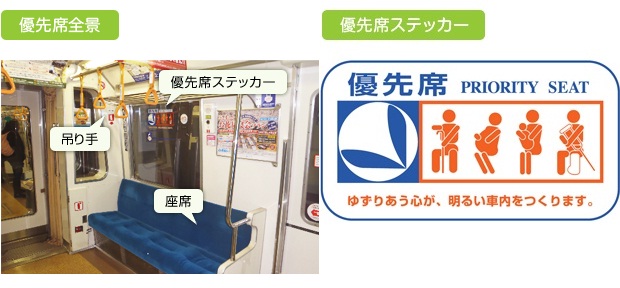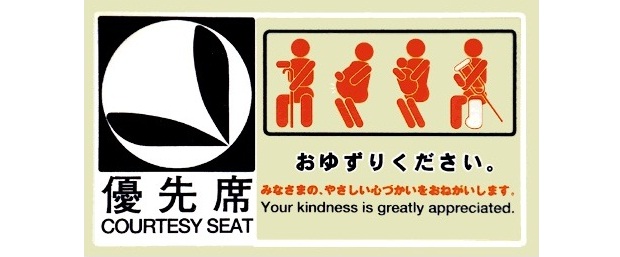It’s a common perception among foreigners that the Japanese are polite and respectful. They say that the Japanese show, if not innately have, good manners in public and seem to act orderly even under the most chaotic circumstances. While these comments sound like a great compliment, showing how disciplined and trained the Japanese are, sometimes I see ironic signs in public which make me wonder what “real” politeness entails.
I’ve been commuting in Tokyo since I was fifteen. An-hour-and-a-half commute to school wasn’t really a hassle for me partly because I was young enough to be able to switch my mental modes quickly from being in a daze to insanity while crushed on a deadly crowded train, and back to the my-brain-is-still-not-working mode. At least I knew there would always be something to look forward to at my destination. As cliched as it might sound, high school indeed was one of the best times of my life (though I should probably mention that I went to four different high schools, and I’m referring to only ONE of them here).
Now that I’m grown up, every morning I have to force myself to get on a train and ensure the same craziness that I somehow almost effortlessly managed to maneuver back when I was still a teenager.
The only “politeness” I can see here is people standing in line before getting on the train. Respect for others? Forget about it.
Another example is a sign of courtesy (or priority) seats.

Source: Tokyo Metro
Some people might think that the sign is intended for the younger generation who, supposedly don’t even know the meaning of the word “courtesy” yet. However, what I have seen in my years of commuting life is the opposite of this assumption. When a space opens, the first group to start up a competition is often middle-aged, tired-looking salarymen.
If one’s fatigue could be accurately measured on the basis of facial expressions or simple gestures, I would not make a single complaint about who should take open seats on trains. I would be more than happy to give my seat to whoever gets on the train in business suits. Salarymen indeed are the most tired-looking people you encounter on trains.

Source: Bureau of Transportation, Tokyo Metropolitan Government
But do we really need to see that reminder or hear the automated announcement on the use of courtesy seats every time we get on a train? In fact, because of its sign and different color they chose for courtesy seats, now even the tiniest thought of occupying one of the seats makes me feel guilty. And if someone ever has to feel guilty to be courteous, then her act only comes from the fear and shame of not being courteous enough.
Does this even make sense?
Yokohama once removed all signs on its subway trains in an attempt to promote the message of “all seats designated for courtesy manners”. However, the great majority of elderly people answered when asked if they had been offered seats on trains after the change that the effect of the new policy was almost marginal. Now the signs are back, once again to remind all passengers to avoid the designated area if they want to secure their seats.
In contrast, New York City Transit made the act of refusing to offer a seat (on request) punishable by up to a $50 fine. While we definitely have to consider both sides of the story, my 84-year-old grandma would probably choose to receive that $50 instead of getting a seat on a train. (She once told me not to treat her like an elder — go grandma!)




















